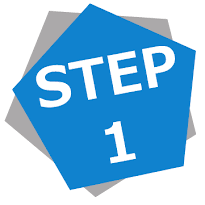Before you collect data for a project, you
must know for what purpose you are collecting the data; what is the problem
that you wish to solve with the data? Hence, the first step of the project is
to identify a research problem that you would like to answer.
At this stage, the student should identify
simple real-world problems that can be solved using basic Mathematical
techniques.
Mathematical activities fill the world,
therefore, students have a treasure of options from which they can choose.
Students should first look within their immediate environment and observe
situations that may require investigation. For example:

1. The home is an excellent place to start
looking for SBA Project ideas:
- Creating a budget or estimate for home renovations can give rise to an SBA Project.
- Purchasing major items for the home can also spark ideas for an SBA Project.
2. The school is another place where SBA
Project ideas can be developed. The following are all great concepts for SBA
Projects:
- absenteeism
- late coming
- improper uniform
- poor cafeteria service
- students’ academic performance
- classroom
Students should pay particular attention to
teachers when they are presenting their lessons. Topics such as: measurements,
statistics, geometry, relations and functions and consumer arithmetic are all
excellent topics that can be used in order to investigate real-world problems.
When a teacher is presenting a particular topic, students should ask the
teacher to explain how the given topic can assist them with the SBA Projects.

3. The community is also a great place to
get SBA Project ideas.
- Students should listen to complaints of poor service by customers. These complaints can then be investigated by using simple Mathematical techniques.
Generally, students can look at any complaint or real-world problem which may be anecdotal in nature and can be investigated by using a simple Mathematical technique.
Check the following list of twenty (20)
scenarios and titles that can be used as research projects under different
topics in Mathematics. These topics are statistics, consumer arithmetic, algebra,
geometry, and matrices.

Comments
Post a Comment